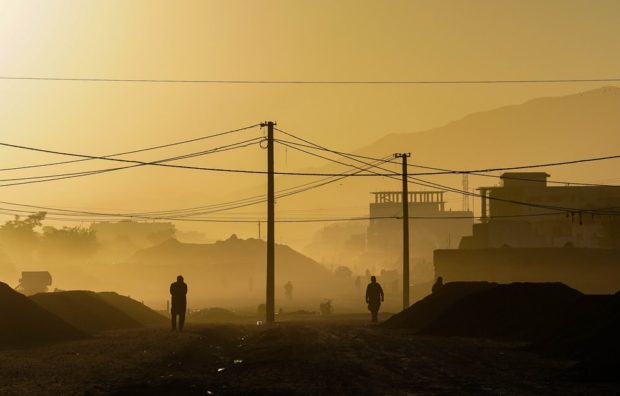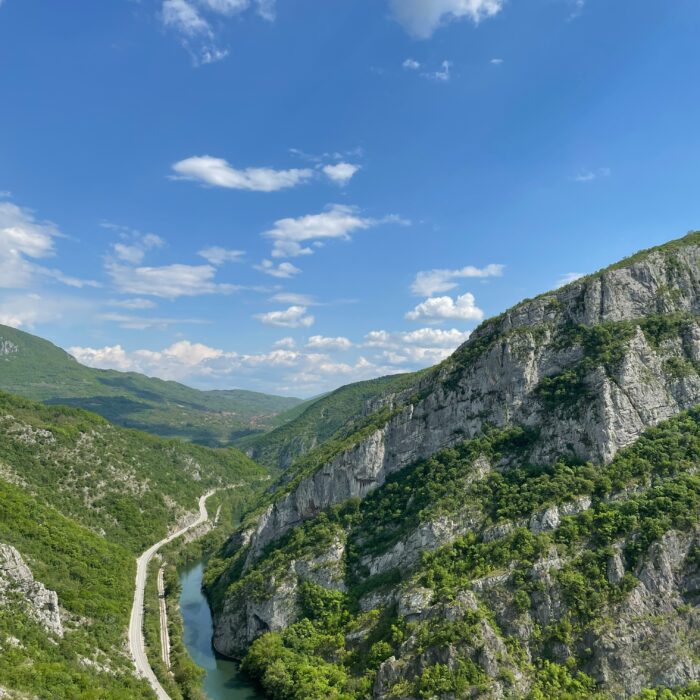You have no items in your cart. Want to get some nice things?
Go shopping
My mobile phone rang. The voice of my good friend, Hafez Mohammad, shouted through the receiver asking, no, demanding that I meet him at his house.
It has been a long time, I said, since I’ve seen you.
He was in no mood for sentiment.
Just come to my house, he insisted. I need to speak to you.
Hafez and I have been friends since childhood. My daughter, Asal, married Hafez’s son, Raziah, a police officer. After the Americans defeated the Taliban and we were allowed to take photographs again, Hafez bought a small digital camera. Over the years he took so many pictures of Raziah. Too many. Raziah as a baby, Raziah playing fútbol, Raziah graduating from the police academy. Enough pictures, I would tell Hafez. I have known your son since he was born. I don’t need to see his pictures. Hafez would laugh. He is my only son, he would say. I am too proud of him. I love my three daughters but Raziah will carry my name and my father’s name. Do you not see me in his face? he would ask, showing me yet another photo.
Looking at all those pictures of Raziah, praise God, I have to admit I felt a little jealous. As Hafez knows, I have only Asal and my wife, Hamdiya. If Hamdiya could only have one child, inshallah, why not a boy? But it was not God’s will. Sometimes, Hafez would rest a hand on one of my shoulders as if to comfort me as he showed me pictures of Raziah. His touch burned and I would shrug him off. Other times I avoided him because I did not want to reminded my close friend had a son and I did not. I would stay home with Hamdiya and Asal feeling a missing part of me that I would never be able to realize.
Then four weeks ago, Raziah’s commander called Hafez while we were in Shar-e-Naw Park watching a quail fight. Your son has been injured, the commander said. He had been on a patrol near Jalalabad when American planes attacked Taliban forces in the Khūdrow mountains. One of the planes made a pass over the police patrol. Where is he? Hafez asked. I don’t know. Where is my son? Hafez insisted. Come to Kharkush Hospital, the commander told him. He spoke loudly and I heard every word. Hafez put his phone in his pocket and stood. I hurried after him.
Raziah was a spoiled boy and I never liked him and I felt a little bit guilty for that now seeing the worry on Hafez’s face. Still, I could not help my feelings. One afternoon when I asked Asal to stop at the bazaar for her mother, Raziah interrupted. She is my wife now, he said. I will tell her where to go and when. He always wore his police uniform. No matter how hot the day, he would have it buttoned to his neck. More than once I told him that when he came to my house he was in no position to tell my daughter what to do while she was under my roof. She was my daughter first, his wife second.
Despite my dislike for Raziah, when Hafez approached me last year about arranging a marriage between him and Asal, I saw an opportunity. Only a few months before Asal had been suffering horrible pain near her stomach. Down there, Hamdiya told me, when I asked her what was wrong, and she pointed down from her stomach and I asked no more questions. Hamdiya took her to a doctor. Two hours later she called me from Ali Abad Hospital. Our Asal has a big problem, she said, and needs surgery. What is wrong? I asked. A tumor, Hamdiya said.
I hurried through Kabul’s busy streets until I reached the hospital. Hamdiya sat on a bench outside. I stood beside her beneath a tree not far from where some men gathered in a circle, swatting at torn, plastic bags carried by the wind, and further away women stood beneath halos of flies trying to calm their children. We stayed in the shade and when the shade shrunk to nothing we moved inside to a waiting room and just as we sat down a secretary called our name. She led us into a small room with a desk and chair. The peeling blue paint curled on the walls. I let Hamdiya sit. In a short time, a doctor walked in. She wore a blue burqa but showed her face. I am Dr. Shukriya Dost, she said. She told us we could see Asal in one hour. The surgery was successful but she was still groggy from anesthesia. The tumor was not cancerous. However, Dr. Dost said, I have sad, difficult news. She paused and then said, Your daughter will never have children.
Hamdiya bowed her head and her shoulders began shaking. I listened to her cry. Dr. Dost placed a hand on her back and did not look at me. There was nothing she could say to me as a father who would never have grandchildren. I left the room and walked outside. I wanted someone to bump me, to say something insulting so I would have an excuse to beat them but I saw no one other than the same people who had been outside before and the black clouds of flies above the children, and I stood and did nothing, shivering with anger and helplessness and then I left for home, my hands clenched. Later, Hamdiya said nothing when she returned to the house. She went into our room and closed the door. When she came out to prepare dinner she told me she had sat with Asal. The doctor said she could come home in the morning. I nodded. I had no questions. What was left to ask? Asal could not have children. What was her purpose now? For that moment, she was as dead to me as if the tumor had killed her.
Hamdiya and I told no one about Asal’s misfortune. Our neighbors are superstitious. They would wonder what we had done wrong to have a daughter with such a problem. Hamdiya warned her not to discuss her condition even with her closest friends. I did not speak of it to anyone, even Hafez. Then last year, he asked me to his house for tea. He said we had been friends for so long it was time our families became one. He asked if I would agree to a marriage between Asal and Raziah. Of course under any other circumstance I would have been overjoyed. My friendship with Hafez meant more to me than my dislike for Raziah. Of course if I had I told him about Asal he would never have asked. What father would want a barren woman for a daughter-in-law? No man I know. Asal would spend her life with Hamdiya and me and when we died she would move in with an uncle and watch his children and be little more than a servant. I would be remembered as the father of an infertile girl. I knew I should tell Hafez. But what if I didn’t? What if I said nothing? I knew Asal would make a devoted wife. She was a good girl. She would care for Raziah, cook and clean and make a good home for him. Why say anything? Raziah would learn soon enough that she could not have children. He could then marry a second wife. He was young with a good job. It would be no problem for him. She would bear him sons and daughters. Our families would be joined and he could still have children and Asal’s condition would no longer be our burden. I agreed to the marriage.
When Hafez and I reached the hospital in Kharkush, a doctor told us seventeen officers had died in the bombing. He took us into a room and showed us a body that he said was Raziah. Hafez and I stared at the dead man. He’s not my son, Hafez said. Perhaps there were two Raziahs? the doctor suggested. Survivors, he said, were transferred to Sardar Mohammad Dawood Khan Hospital in Kabul.
We returned to Kabul but doctors at that hospital had no record of Raziah and would not let us in unless we could prove Raziah had been admitted. Hafez wrote a message for the administrator explaining what the doctor in Kharkush had told us. A secretary folded it in her hand and hurried down the hall and through a door. We waited. Hafez flipped through photographs of Raziah on his phone, his eyes red and unblinking.
Four hours later, a man walked up the hall with the secretary. She pointed at us. He wore a western suit and tie and the grit on his white Hafezt showed it had not been cleaned in many days. He told us to return in the morning and he would have information for us. Hafez looked at me. His eyes were so vacant I became lost in his stare. I want to be alone, he told me. I am sorry my friend, I said. I will see you tomorrow.
The next morning, I met Hafez at the hospital gate. He had not changed clothes and his drawn face told me he had not slept. He barely said hello. When he took my hand and kissed my check I felt the dead weight of his sorrow.
A security guard told us the hospital was closed to visitors. Hafez erupted like a lion, his dead eyes alive now with fury, and threw himself at the man, punching and kicking him until other security guards pulled him off. Two policemen ran up. One of them recognized Hafez because he had attended the academy with Raziah. He told us to go home. His son died in Kharkush, he explained to the guard Hafez had punched. Died? Hafez shouted. Is my son dead? No one has told me anything! Come back tomorrow, the officer told him. Is he dead? Hafez insisted. It’s not for me to say, the officer said. Come back tomorrow. Hafez turned to me, tears in his eyes. I embraced him, and I felt his body convulsing with rage and torment as if at any moment he might explode.
That evening I sat alone while Hamdiya tended to Asal in her room. I cannot imagine how Hafez feels. To lose a son, my God! A son is an impossible loss. My friends wonder why I never took a second wife who could give me more children and inshallah, a boy, but I am a poor man and have little to offer another man for his daughter. I content myself with the knowledge that Asal has my long nose and brown eyes and high forehead. I had once thought that these things she would pass on to her children and a small part of me would survive. It is too sad for me that did not happen. Nothing will be left of me and my father’s name.
At the hospital the next morning a different secretary called the administrator. I noticed he still wore the same tired clothes. The light switches in the waiting room did not work or perhaps the lights were dead. We moved through shadows following the administrator to a room where a young man wrapped in bloody bandages stared at us. He is not my son, Hafez said. The administrator took him to more rooms where more injured men lay in beds. Raziah was not among them.
We left and took a bus back to Kharkush and asked for the doctor who told us Raziah had been sent to Kabul. The doctor had gone home, the hospital administrator told us. Hafez showed him a photo of Raziah. We have looked everywhere, Hafez said. He must be here. The administrator passed the picture around and a nurse said, Yes, I went out with the ambulance and I pulled this man from a car. Where is he? Hafez asked. The nurse shook his head. Where is he? Hafez asked again. He was in pieces, the nurse said. Half of his body was burned. We buried him by the road. The nurse drove us to the spot. Hafez stared at the barren, pebble-strewn ground. I remembered when Raziah was a boy. One night, Hafez told him that long ago giants had roamed Afghanistan and played fútbol with boulders. When they got tired they left the boulder where they had rolled to a stop and that was why so many of them cluttered the mountains of Afghanistan. Boys believe anything their father’s tell them about power and strength and Raziah was delighted by the tale.
Do you want to take him to Kabul? the nurse asked. No, Hafez said in a low voice. He is already buried. Leave him. We prayed over the spot: Oh, God, forgive our living and our dead, those who are present among us and those who are absent, our young and our old, our males and our females. O God, whoever You keep alive, keep him alive in Islam, and whoever You cause to die, cause him to die with faith.
After a long moment of silence, we returned home. We did not talk. When we reached Kabul, Hafez turned to me and said, I have to tell my family. All they know is that Raziah is missing. I followed Hafez to his house. His wife, Azyan, opened the door, his three daughters stood behind her. Hafez said nothing. His family knew by the expression on his face. I bowed my head and clasped his hands. Azyab screamed and the girls, too. I could still hear them as I walked home.
For four weeks, I saw nothing of Hafez but Hamdiya told me disturbing stories Azyan had passed to her when they saw each other at the bazaar. She said he had drawn all the curtains and spent his days hanging Raziah’s photos everywhere in the house–––in the front hall, the bedrooms, even the kitchen and bathroom. Raziah’s still, unrelenting gaze stared upon Azyan no matter where she turned. Their daughters, who had adored their brother, now hid in their rooms, and when they ventured out they would hurry through the halls looking neither left or right at Raziah’s pictures until they came outside and raised their arms as if they had emerged from a cave. One daughter knocked down a photograph when she stumbled and fell and Hafez bellowed like a wounded animal and chased her from the house.
I think he has lost his mind, Hamdiya told me.
I did not know what to say. Sometimes when I wondered about Hafez I said to myself, Well, now you and I are the same. Neither of us have a son. I felt ashamed thinking this way and struck my head and prayed to God for forgiveness. Still, a part of me, a bad part, I know, was pleased. There would be no more talk about sons between us.
I was worried about Asal. Since Raziah’s death, she rarely came out of her room. Sometimes I would hear her weeping in the middle of the night. Hamdiya would get up and sit with her. I felt caught between them. In this situation she understood Asal. As a father, I was helpless to comfort her. When Hafez called me this morning I thanked God for the opportunity to leave the house.
He must have seen me walking up the street because I had not even reached to ring the bell when he opened the door. One look at him and I knew he had not slept for many days. His lined face, drooping mouth. Circles like ponds under his eyes. We embraced, his body slack in my arms. Kicking off my sandals, I stepped past him and stopped, unable to conceal my shock. Just as Hamdiya told me, photograph after photograph of Raziah covered the walls like a giant collage. Even the ceiling held pictures. His eyes followed me no matter where I turned. Hafez pointed at two boxes of framed photographs on the living room floor. Creases, small tears and water marks blemished some of them.
Help me with these, Hafez he said in a flat voice.
He tapped a nail in the wall with a small hammer, picked up a photo of Raziah playing soccer and hung it. He then selected a picture of Raziah in his blue police uniform. Unlike his father’s full beard, thin patches of hair dappled his young face.
This is the last room, Hafez said. Give me a picture. Any one.
I did not move. You have to stop this, I said.
Hafz ignored me. He took another photo. This one showed Raziah and Asal at their wedding. Hafez traced a finger around Asal’s face.
One of Hafez’s daughters, a black veil across her face, carried a tray with a pot of green tea, two glasses, a bowl of sugar and a plate of raisins. She bowed, set the tray on the floor and left. Hafez gestured for me to sit. He poured the tea. Setting the pot down, he picked up his glass and looked at me.
It’s too late for Azyan to have children, he said.
You’ll have grandchildren one day, I said.
They won’t have my family name.
Yes, I know this, I said. I face the same problem. Still, they will be your grandchildren. That is what I tell myself.
That may be fine for you but it is not fine for me.
It has never been fine for me, I said. Now you hurt but for too long I have carried the hurt you now have.
He gave me a contemptible look.
Wishing you had a son and losing one are two very different things my friend, Hafez said.
I said nothing. knew I should tell him Asal would never have given Raziah children but I was angry. For years he had boasted of Raziah and showed me his pictures in my face. Did he never once think of the pain he had caused me? The humiliation.
Asal should marry again into my family, Hafez said, setting down his cup. God tells us when there’s a widow, she has three months to sit in a house and mourn. After that, her family has the right to arrange for her to marry again. The Quran does not prohibit a man from marrying his brother’s widow.
But Raziah had no brothers, I said.
I want Asal as my second wife, Hafez said, sounding a little impatient. I’ve thought about it a long time. Asal is young. She and I would have a son and I would name him Raziah so the world will never forget my martyred boy.
I stared at Hafez, speechless. My palms got damp and I wiped them on my legs and my heart beat faster. I knew I should tell him Asal would never have given Raziah children but I did not. I could not imagine his fury. His whole family would turn against us and all of our neighbors, too. Asal was my daughter, my only child. All that matters to a father is what is best for their child even if she is a girl.
When she married Raziah she became your daughter, I managed to say. A man does not marry his daughter.
We both know she is not my daughter. Not in that way.
You would not be happy with her. I’m sure Raziah told you she can be difficult.
Raziah said no such thing.
God does not tell us if our daughters will have sons, I said finally. You might only have daughters again.
My friend, I am asking for my life, he said.
Your life? We are too old, Hafez, to marry again. Asal is young. You will die and leave her alone.
She will have our children to care for her.
No, I said, my throat tight. She will not.
Hafez looked at me for a long time.
What are you saying? he said.
You cannot marry her.
Hafez did not move. Then he stood and picked up a nail and pounded it into the wall and put up a picture. And then another and another.
You are the death of me, he said in a quiet voice.
He struck each nail harder and harder. Dust drifted to the floor. The pictures rattled in their frames, tilted against the wall. I thought they would fall.
Raziah is dead, I said.
Leave my house! he shouted, his back to me.
I hurried out. In the hall, Raziah’s blank gaze followed me to the door. When I stepped outside the bright mid-day sun froze me in place and I stood motionless, my hands raised to my forehead until my eyes adjusted. Once I could see, I walked away. There was no shade. I moved through the dry heat with the certainty I would never see Hafez again.
Another man may desire Asal when she finishes mourning and I may allow her a second marriage if he is young. I would ask Allah’s forgiveness and not tell him she was sterile. I would love him like a son and grieve with him once he understood her condition. He could marry again. If his second wife bore him sons, inshallah, perhaps he would honor me by giving one of them my name, the name of my father and his father and all of the fathers that have come before, but only Allah’s mercy is guaranteed in this life.
J. Malcolm Garcia
J. Malcolm Garcia is a recipient of the Studs Terkel Prize for writing about the working classes and the Sigma Delta Chi Award for excellence in journalism.
- More Posts(2)




